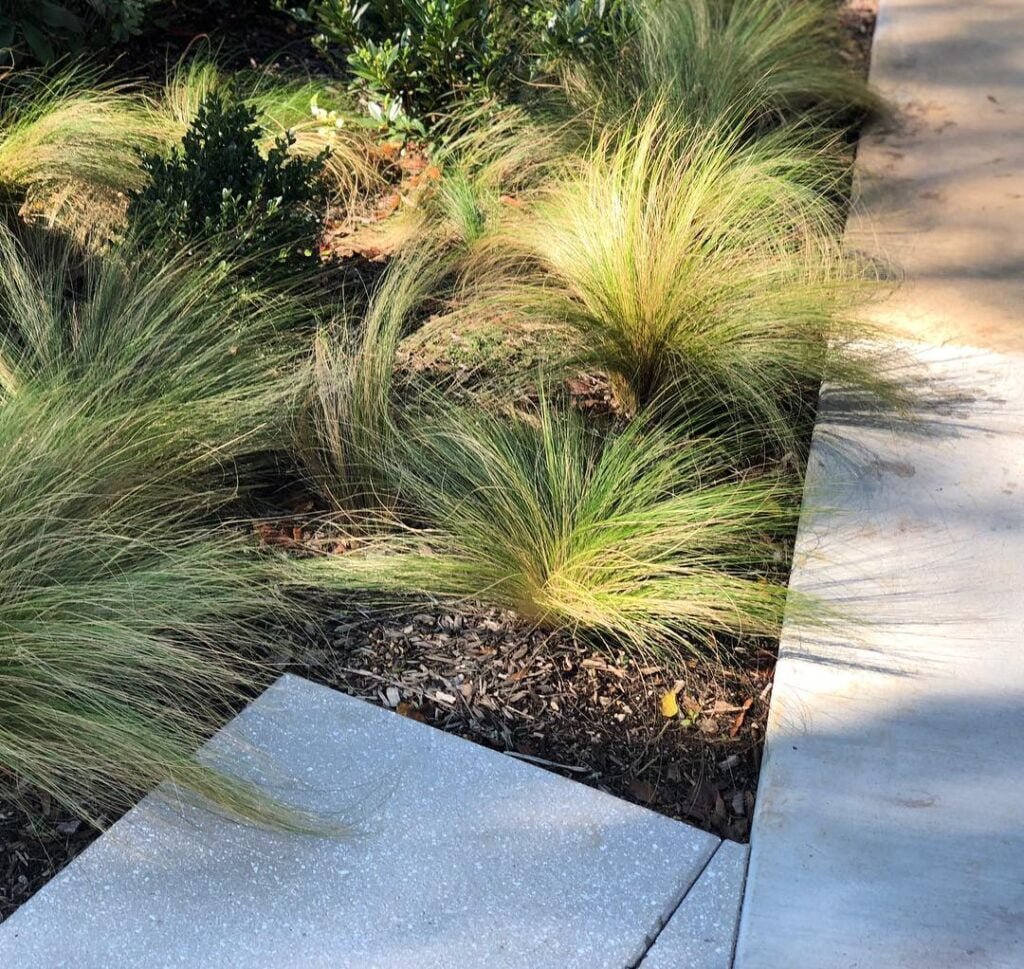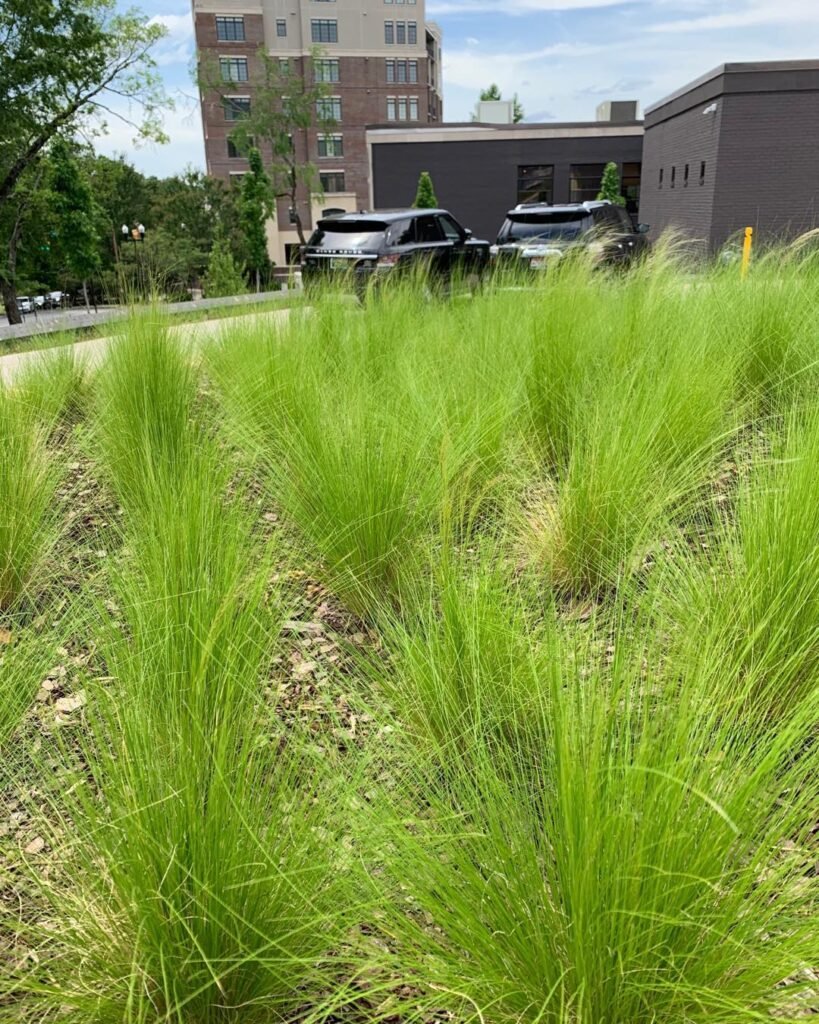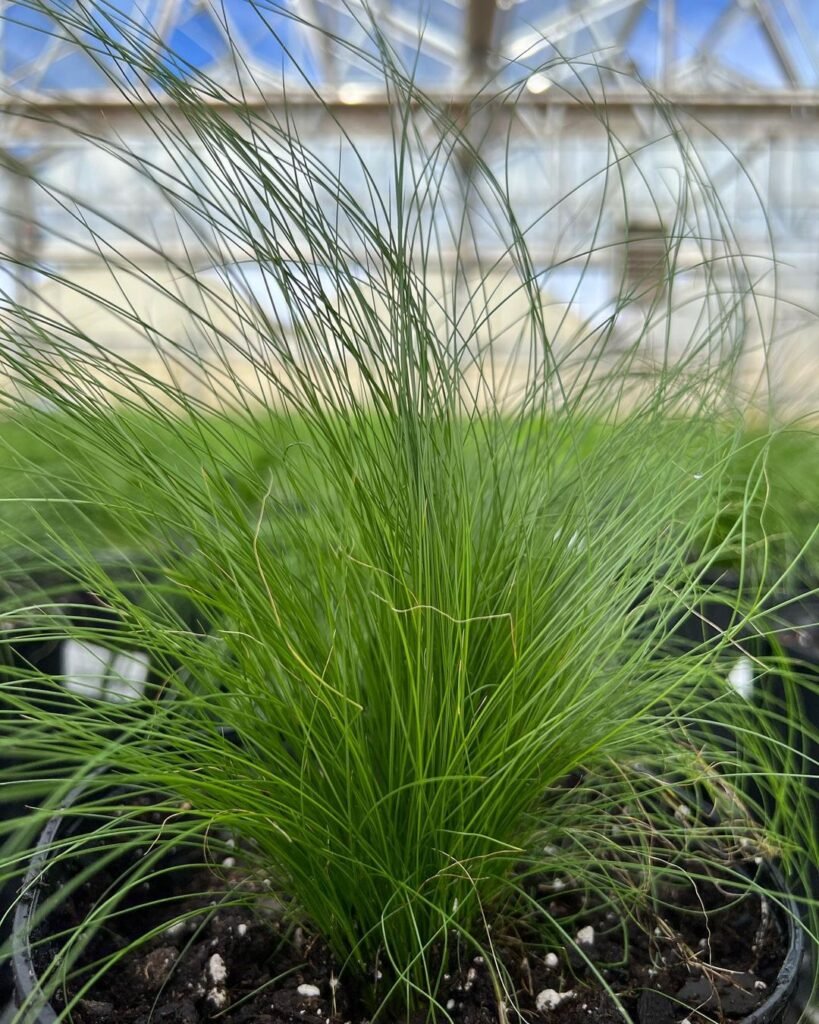Want to add breezy movement and texture to your garden? Mexican Feather Grass is low-fuss but high impact. Get my simple tips for sun, soil, water and more.

Mexican Feather Grass (Stipa tenuissima) is one of those effortlessly cool ornamental grasses that gives your garden an instant laid-back vibe. With its slender green blades and airy plumes that sway in the breeze, it adds gorgeous texture and movement too.
But here’s the best part – Mexican Feather Grass is incredibly low maintenance, yet high impact. By nailing a few basics like the right conditions and care, you’ll be rewarded with this beauty year after year. No fussy plant parenting required!
Let’s dig into all the tips for growing lush, healthy Mexican Feather Grass.
The Perfect Spot for Planting

Like most ornamental grasses, Mexican Feather Grass craves all the sun it can get. We’re talking at least 6-8 hours of direct light daily for best results.
It’s cool with full sun exposure, thriving in those sunny southern or western spots. Just avoid shady areas or you’ll end up with floppy, sparse growth instead of those perky plumes.
Well-draining soil is also an absolute must to prevent issues like root rot. A loamy or sandy soil mix amended with compost or manure gets the job done. But really any loose, well-aerated soil will make this grass happy.
Remember, Mexican Feather Grass is drought-tolerant once established. So you don’t need to stress about finding the perfect moisture levels – it handles dryish conditions like a champ.
Planting & Spacing

Getting your spacing right allows for good air circulation to prevent disease and fungus issues down the road. Experts recommend planting Mexican Feather Grass about 18-24 inches apart in the ground or containers.
For in-ground planting, dig your holes about twice as wide as the root ball. Then set the plant in at the same soil level as its nursery container. Backfill with soil, pressing gently to remove any air pockets.
Top with a 2-3 inch layer of mulch like shredded bark to help retain moisture around the shallow roots. This gives the grass a chance to establish itself more quickly.
Water Wisdom

Consistent moisture is key when first planting Mexican Feather Grass while those roots get established. But don’t go overboard – soggy soil promotes disease, rot, and insect problems.
Once the grass takes hold after about 4-6 weeks, feel free to cut way back on watering. This self-sufficient plant needs very little supplemental moisture going forward, thanks to its drought resistance.
Rainwater is always ideal if you’ve got it. But your Mexican Feather Grass can also handle typical municipal water without issues. Just avoid daily overhead watering, which promotes fungal growth.
Low-Key Maintenance

One of the biggest selling points of this grass is how little upkeep it requires. It’s practically the plant equivalent of a self-cleaning oven!
Give it an annual trim in very late winter or early spring before new growth emerges. Use clean, sharp pruners to remove any dead or damaged blades down to about 6 inches tall. This helps reinvigorate lush new growth.
You can also comb through and remove any dead foliage periodically. Other than that? Just sit back and enjoy the show – no intense primping necessary.
This grass is also fairly unfazed by most pests and diseases when planted in the right conditions.If you do spot any issues like rust fungus or mites, spray down affected areas with insecticidal soap and separate badly infested plants.
Easy Propagation

Mexican Feather Grass will slowly spread outward over time via its root system, creating beautiful drifts and swaths when left alone. But you can definitely speed up that process!
Simply dig up a section of the grass with roots attached in early spring or fall. Replant that division elsewhere, leaving about 18 inches between plants. Water regularly until established, then relax with your low-care routine.
Seed grown plants take a couple years to put on a fluffy plume show. But those propagated divisions will fill out and bloom just like the mother plant much faster.
Better Still With Age

One of the best things about Mexican Feather Grass? It gets better and better with age. More drought-tolerant, more lush, more billowy plumes to sway in the breeze.
You can easily enjoy these durable grasses for 7-10 years or more before any natural die-off occurs. Let things go to seed in fall and they’ll self-sow lightly, expanding their footprint in your garden too.
So kick back and enjoy their wispy texture all season long. With just a bit of forethought on planting and spacing, these feathery ornamental grasses deliver ongoing beauty with basically zero efforts required. I’d call that a gardening win!
Pingback: The 13 Best Flowering Trees for Your Garden -
Pingback: Easy Guide to Growing Charming Hens and Chicks Succulents -
Pingback: “Vibrant Viburnum Shrubs: A Beginner’s Guide to Growing Successfully”
Pingback: Monkey Tail Cactus: A Fun, Easy-Care Succulent -
Pingback: “Growing Beautiful Weigela Shrubs: A Beginner’s Guide” -
Pingback: 18 Ornamental Grass Varieties to Beautify Your Landscape All Year Round
Pingback: Mangaves: How to Grow Magnificent Agave Hybrids Successfully
Pingback: Succulents Care: 5 Steps for Healthy, Thriving Succulents
Pingback: Beauty of Succulents with Pink Flowers: A Gardener’s Guide
Pingback: Grow Your Quirky Tractor Seat Plant: A Comprehensive Guide
Pingback: Prickly Pear Cactus (Opuntia): Comprehensive Guide to Caring
Pingback: How to Grow and Care for Broom Plants Gardeners Schoo
Pingback: Dichondra argentea Silver Falls: A Comprehensive Guide
Pingback: How to Grow and Care for Virginia Creeper Gardeners School
Pingback: How to Grow and Care for Citronella Grass (Mosquito Grass)
Pingback: Self-Watering Indoor Plant Pots Gardeners Schools
Pingback: Foxtail Fern: A Complete Guide to Growing and Caring
Pingback: Foxglove Beardtongue: Growing Tips for Vibrant Blooms
Pingback: Cultivating Iris Flowers: Tips for Stunning Blooms
Pingback: Zinnias Flower: Top 10 Varieties for Colorful Gardens
Pingback: Nature’s Beauty: Trees That Start with ‘D’
Pingback: Guide to Keeping Calathea Plants Healthy and Gorgeous
Pingback: Spirea Shrubs : Flowering Stars for Year-Round Interest - Gardener's School
Pingback: Planting Succulents: 8 Tips for a Vibrant Succulent Garden
Pingback: Agave Plants: An Easy Guide to Growing Bold & Beautiful Varieties
Pingback: Butterfly Bush Care Guide: How to Plant, Grow and Maintain Buddleia
Pingback: Cranesbill (Hardy Geranium) Care: The Definitive Handbook - Gardener's School
Pingback: Spider Plants and Cats: Debunking the Hallucination Myth
Pingback: Umbrella Tree : A Comprehensive Guide to Cultivation - Gardener's School
Pingback: The Ultimate Guide to Aquarium Water Plants : Enhancing Your Underwater Ecosystem
Pingback: How to Grow and Care for Forest Pansy Redbud Trees - Gardener's School